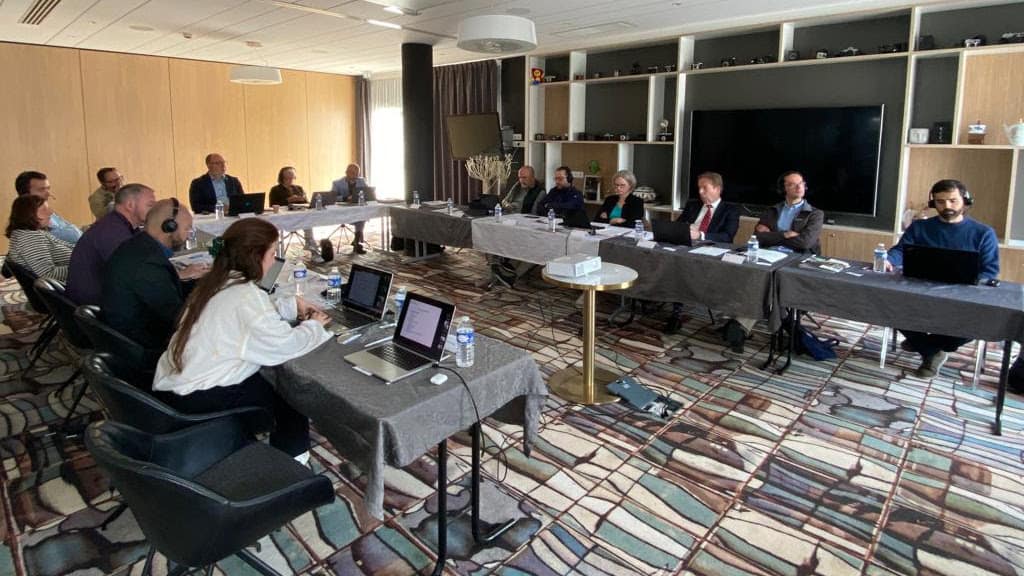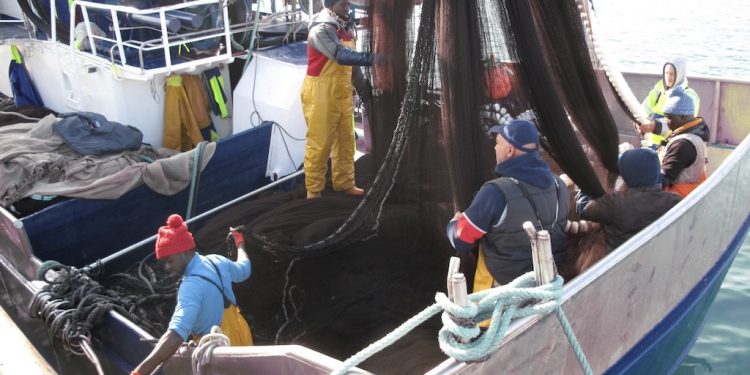The European social partners for sea fisheries – Europêche and ETF – made use of the European Maritime Day in Brest, France to make progress in their project fully focused on improving the social dimension of the Common Fisheries Policy.
In their joint effort, Europêche and ETF, in the framework of the Pillars of the Sea 3 project work together with specialists on the development of a wide range of tools like guidelines, course programmes, legal analyses, and recommendations for a safer, healthier, and more worker friendly fisheries sector in not only the EU but also worldwide.

The discussions in Brest focused on key issues to which the project is expected to come up with practical solutions mid-2024, particularly on social issues such as recruitment and work opportunities for migrant fishers, training programmes for medical examinators certifying fishers, tools to address forced labour in the value chain, and a mobile app to address the absence of a common language in vessels operated by multi-national crews, which implications for safety on board.
In parallel and taking advantage of the organisation of the European Maritime Day, productive dialogues took place between the project experts, the social partners and the larger Europe’s maritime community to discuss how the project deliveries can contribute to a sustainable blue economy. During the meeting the project partners assessed, measured and made good progress on the first outputs. The final results will be presented in Brussels in the second half of 2024.
The project, co-funded by the EU, partially implements the work programme of the Sectoral Social Dialogue Committee for Sea Fishing in order to significantly make progress in various key areas of interest for Social Partners.
Pillar 1: Guidelines for vessel owners on decent recruitment of migrant fishers. The guidelines will be based on EU legislation and other binding international instruments and be used to constitute model contracts between a fisher and a private employment agency, between a fishing vessel owner and a private employment agency, and fisher’s work agreement. Pillar 1 is to be developed by international social affairs expert Estelle Brendtall.
Pillar 2: Training programme for doctors performing medical examination of fishers. In the previous project, the Social Partners successfully developed guidelines on the medical examination of fishers. As a continuation of this work, it is essential for doctors, who conduct medical examinations and issue medical certificates, to receive training via guidance which fit the specificities of sea fishers. Pillar 2 is to be developed by International Maritime Health Association (IMHA).
Pillar 3: Legal analysis on market and custom tools to combat forced labour in the fishing industry. This pillar will explore the possibility for EU to restrict or prohibit seafood imports from fishing vessels or countries identified for child or serious labour abuse including no respect of basic human rights on board fishing vessels. Pilalr 3 is to be developed by Marinnleg foundation.
Pillar 4: Upgrade of the Fishery Speak app, an interactive glossary, providing an overview of the main phrases used on board a fishing vessel. The aim of this upgrade is therefore to add further languages identified as essential and the necessary uploads and technical updates of the mobile application. This is to be developed by IT company Innatial developers SL.
The project is a continued effort under the Sectoral Social Dialogue Committee for Sea Fishing in order to significantly make progress in various key areas of interest for Social Partners.
The mobile application developed improving on board safety as well as navigation security which will be upgraded in the course of this project, can already be downloaded and used.









